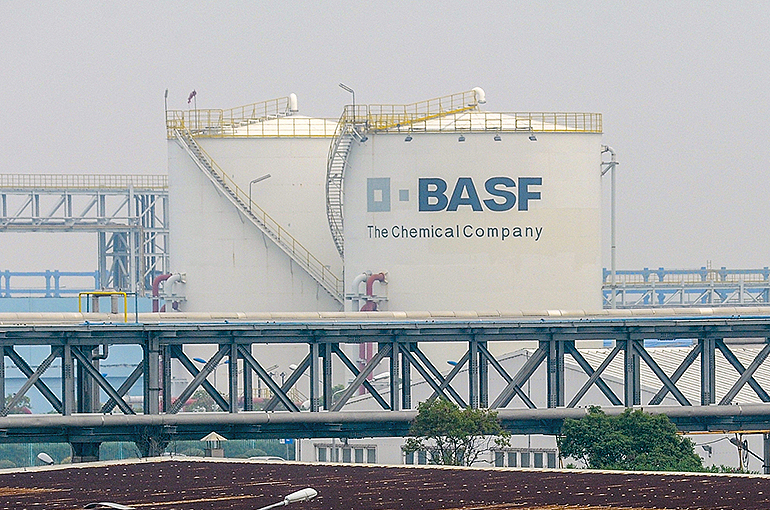 China Is World's Largest Chemicals Market, BASF’s Local Chairman Says
China Is World's Largest Chemicals Market, BASF’s Local Chairman Says(Yicai) July 29 -- China has become the world’s largest chemicals market, and its growth momentum is increasing, according to the chairman and president of the Chinese arm of German chemical giant BASF.
China is an important growth engine for the future of the chemicals industry, which presents BASF with tremendous development opportunities and encourages the company to keep cultivating and investing in the Chinese market, Jeffrey Lou told Yicai in an interview.
BASF has 27 subsidiaries, 11 joint ventures, and 25 sales offices in China. It operates 30 complexes in the country, with its main production facilities located in Chongqing, Nanjing, Shanghai, and Zhanjiang. Two of BASF’s seven verbund sites are in China.
BASF’s verbund site under construction in Zhanjiang, Guangdong province, is the company’s most expensive single project, with a total investment of about EUR10 billion (USD10.8 billion). Once completed, the site will become BASF’s third-largest worldwide after those in Ludwigshafen in Germany and Antwerp in Belgium.
“We invest in China to enhance local production capabilities and strengthen local research and development capacity,” Lou said. “China’s vast market, comprehensive supply chain, and excellent talent pool are solid foundations for innovation.”
In particular, Shanghai's market-oriented business environment, favorable conditions for scientific and technological innovation, and top-tier research talents provide fertile ground for collaborative innovation, he added.
"About 80 percent of the products BASF sells in China are manufactured locally," Lou pointed out.
BASF’s Energy-Saving and Carbon Reduction Initiatives
“As a global chemical giant, BASF aims to play a significant role in the green transformation of the chemical industry,” Lou told Yicai. “We are continuously expanding our environmentally-friendly product portfolio to help our customers achieve their sustainability goals."
BASF and its supply chain partners, such as Asia Pulp and Paper, DuBaiCheng Environment Protection Engineering, and Hunan Lido Environmental Science and Technology, jointly initiated the Pioneer Alliance for Zero-Carbon Recyclable Paper Cups last month at the 2024 Shanghai International Carbon Neutrality Expo in Technologies, Products, and Achievements.
The Pioneer Alliance for Zero-Carbon Recyclable Paper Cups aims to promote the recycling of single-use paper cups and calls out for more partners to join forces and promote resource optimization, circular economy, and carbon emission reduction, according to BASF’s website.
BASF is heavily investing in renewable energy assets and has entered into long-term supply agreements with power plant operators, according to the company’s 2023 financial statement. It is also purchasing green electricity on the market through direct green power purchase agreements or renewable energy certificates.
To meet the renewable energy demand of the Zhanjiang verbund site, BASF has formed several partnerships.
Last year, it signed a 25-year power purchase agreement with State Power Investment Corporation. Under the agreement, SPIC will supply one billion kilowatt-hours of renewable energy every year to the Zhanjiang integrated base from next year.
Moreover, BASF penned a letter of intent for cooperation with the Guangdong Electric Power Design Institute under China Energy Engineering Group, which includes a 25-year renewable energy power purchase plan.
As China’s growth direction shifts towards high-quality and sustainable development, BASF is optimistic about the opportunities that related industries will bring about, Lou said.
These opportunities include emerging industries, such as new energy vehicles related to future transportation and renewable energy power related to future energy, as well as traditional industries in urgent need of upgrading, such as the smart home appliance, construction, personal care, and household product industries.
"Last year, BASF's sales to Chinese customers reached about EUR9.4 billion (USD10.2 billion)," according to the firm’s latest annual report. BASF is committed to staying close to its customers.
Editor: Futura Costaglione